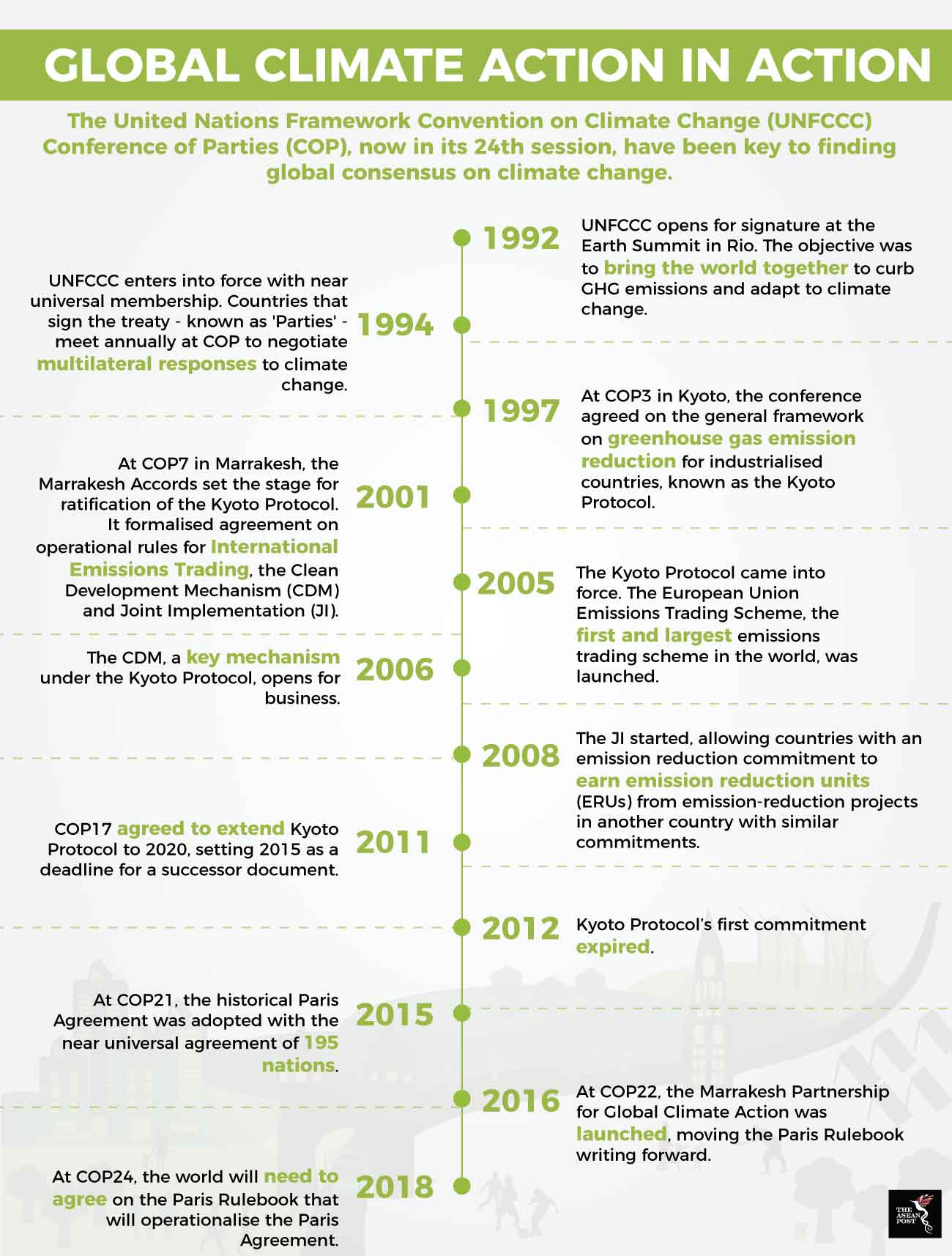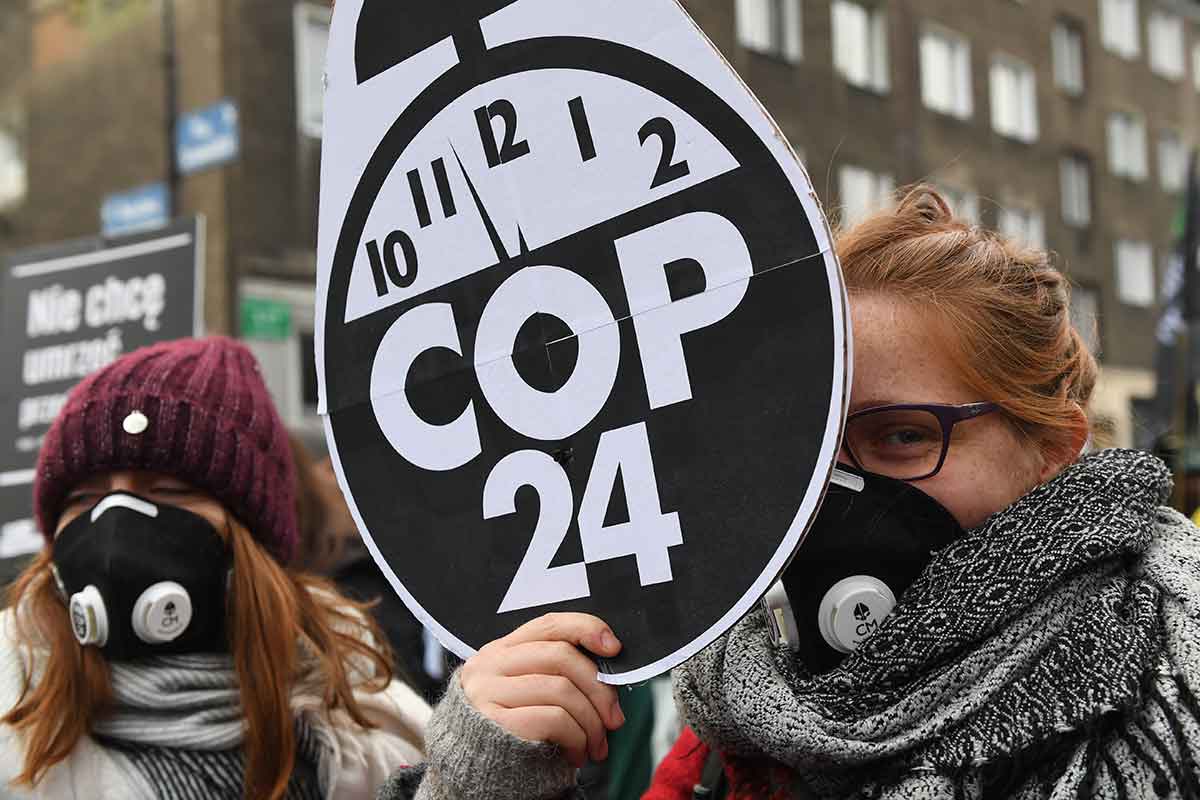“We can't afford to fail in Katowice,” said United Nations (UN) Secretary-General António Guterres in his opening remarks at the kick off of the 24th Conference of the Parties (COP24) to the United Nations Framework Convention on Climate Change (UNFCCC), last week, warning world leaders that climate change was running away from us, dragging with it a plethora of problems from rising atmospheric and ocean temperatures, as well as sea levels.
However, many are questioning the potential for a climate win at the global summit meant to clinch the global deal for the operationalisation of the Paris Agreement. From the start, common understanding of what needs to happen to ensure COP24’s success was clearly missing. For one, the two-week global summit, sponsored by three Polish state-owned coal companies, is held at the Polish coal city of Katowice.
As if this was not enough, inside the conference centre for the summit, there is a literal shrine to coal. For his part, the hosting country’s president, Andrzej Duda, reiterated his support for extended coal use by assuring coal will not be “murdered” on his watch.
Warming up the coal
Experts have agreed that coal needs to be phased out if climate targets are to be achieved. This is because the coal mining process releases methane, a greenhouse gas (GHG) that is 87 times more potent than carbon dioxide (CO2), coal-fired power plants release the most GHG per unit of energy produced comparatively, and carbon capture and storage (CCS) technologies needed to make coal greener is extremely expensive and rare.
Sponsorship by fossil fuel companies for a summit whose success relies heavily on energy decarbonisation has been highlighted and criticised. Without even the pretence of support, fossil fuel companies’ persistent interference could affect countries’ abilities to negotiate effectively for climate action, according to Pascoe Sabido, a campaigner for Corporate Europe Observatory.
“Unfortunately, we're not going to get that [Paris Rulebook] because those same industries causing climate change are still setting the agenda, are still in bed with our governments, and are still making sure that their profit comes first,” said Sabido, calling for a robust “firewall” between the polluters and policymakers, as quoted by the anti-greenwashing platform, Desmog.
Discontent in the negotiation
COP24’s wobbly stand is not just limited to the public façade, but is also at the heart of the negotiation. Weighing heavily on the negotiation is ensuring that ambitious climate actions are agreed upon and implemented in an equitable way. Third World Network’s Meena Raman said that this cannot be achieved if historical emission is ignored and the principle of common but differentiated responsibilities is not respected by developed countries.
Major discontent revolves around the world’s two biggest carbon polluters. China’s refusal to join the ranks of developed countries and assume climate action responsibilities and the United States’ (US) intention to withdraw from the Paris Agreement, as well as its cancellation of climate funding for poorer nations. From Turkey, to China, India, Russia and Brazil, there is uncertainty on what makes a developed country and the implications of taking responsibility for one’s own emission reduction.

Source: Various sources.
Stumbling block for countries wanting to do better
“What you will see in this document is some countries, particularly in the developed world, led by the United States and its allies, who will try to ignore historical responsibilities, who will not want to talk about the differences between developed and developing countries, and who will say that the world has changed and push for what they call common approach. It is almost as if the developed countries are forgetting there are existing obligation already.
“What we are really worried about is what the US delegation will do in the talks here. The US will push its agenda in holding many of the talks from moving forward. The US should not hold hostage the rest of the world in pushing for climate ambition even if they don’t believe that climate change is real,” said Meena at COP24.
The reality does not escape other leaders, experts and activists attending the summit. Outside the conference centre, breathing means a lungful of smog, courtesy of the Polish coal power plants in the near distance. The 2017 devastations – a mixed bag of catastrophic flooding, hurricanes, storms and wildfires – caused unacceptable death tolls and ravaged homes, incurring double the economic loss of the previous year.
The joke really is on the people who suffer from air pollution every day of their lives, and on the rest of the world who will have to pick up the tab and pieces that are their lives impacted by the increasingly volatile climate. And while these countries continue to posture and bicker, the window for avoiding the worst possible scenario for the future continues to close.
Related articles:
Deciding on the Paris Rulebook at COP24
US accused of blocking UN climate talks
In defence of the 1.5°C climate change threshold
